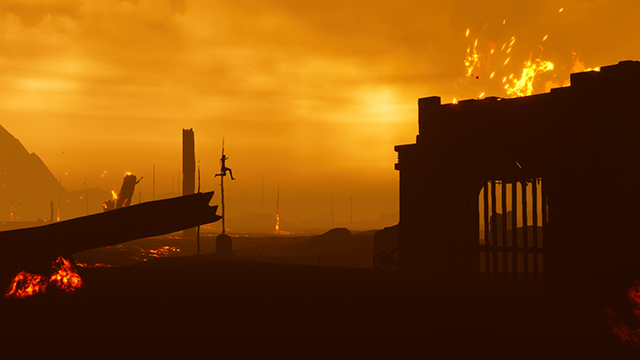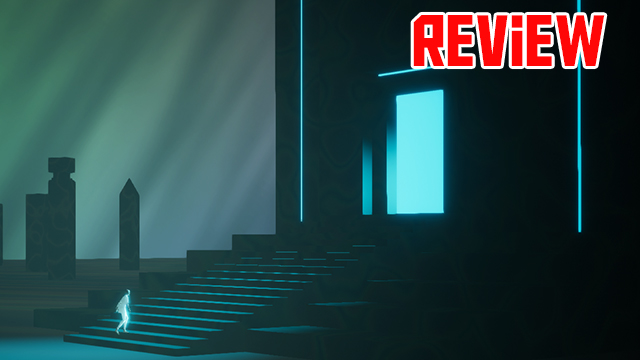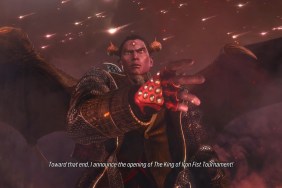Souls-likes and cinematic platformers have been two genre spin-offs that have yet to be topped by any team outside of those who started those trends. The former are still largely owned by FromSoftware while Playdead still reigns supreme over the latter. But that doesn’t mean others can’t try their hand, which is exactly what SkyBox Labs has done with STELA, an atmospheric platformer with obvious inspirations. Even with its remarkable minimalist visual style and occasional awe-striking segments, it falls well short of the high genre expectations.
The weight of those genre expectations comes down almost right as the game starts, as its beginning eerily mirrors Inside’s intro and Limbo’s silhouette art style. Given how blatantly it is communicating its influences, it’s almost impossible not to immediately draw comparisons to Playdead’s work.
ALSO: Limbo and Inside Developer Playdead Working on a Sci-Fi Game
And, despite how closely it follows the Danish studio, it is borrowing for a good reason. SkyBox Labs has crafted a dark world that catches your eye despite the initially basic art direction. Its palette is hardly vibrant — and often the complete opposite — but it succeeds in how it utilizes its few drab colors. Shadows and lighting play a key role in making these hues work well together as, like Limbo, the stark contrast makes a lot out of a little. Environments change tones as you progress and while the first few stages are the most eye-catching, it uses its style effectively to create a visually arresting universe.
Stela Review | A mystery that’s a missed opportunity

Visual splendor does not translate to it being an interesting world though. Whereas the locales are vast, sweeping, and wonderfully constructed, they don’t work together and create a cohesive universe that others in the genre do. Those other games have worlds with similar qualities but also use those environments to weave together a subtle narrative. Not everyone is going to come away with the same conclusions in Inside or Limbo, but there was enough to where you could gather some semblance of a story. It’s the most any game like this could ask for.
Stela aims to tell its tale in the same mysterious style, given how most of its story is in the game’s marketplace description, but doesn’t pull it off with the same grace. For as much as it works visually, its multiple stages don’t flow from one area to another. As a result, they all feel as though they are disparate levels stitched together from different games since little brings them all together.
Lacking a unifying tone means it has exponentially more trouble creating at one interconnected world that gives players enough to draw from. Very little happens and the through lines tying each area together are weak. When a game doesn’t outright tell you a story and leaves it up to the player, it also better make sure there is enough to grasp at and give them enough to create that mental narrative. Without enough substance to latch onto, it’s a bunch of random events that seemingly have no overarching goal and subsequently lacks the satisfaction a self-created story should have. Given how Limbo and Inside have beautifully excelled in that area, Stela’s anemic attempt at a wordless story is even more apparent.
Stela Review | Jumping to safety

Stela, for all of its missed worldbuilding opportunities, does at least get most of its platforming right, even if it fairly worn territory. Jumps are weighty but the game is built around it so it never demands quick reflexes that the controls can’t support. Many of its sections will require trial and error since something unexpected can kill you at a moment’s notice, which is where the game derives its challenge. Be it avoiding ghoulish monsters, a swarm of killer beetles, or some Uncharted-esque ancient stone mechanisms, you’ll usually have to proceed with caution. The protagonist’s fragility combined with the persistent presence of danger adds tension to platforming, even if some of those moments can be a little unfair and cheap.
Those infrequent cheaper moments lack the necessary cues to avoid frustration but many more of them just aren’t hard to solve. Its puzzles rarely require more than a few seconds of thinking and hardly get your brain juices pumping. There are thrilling sequences that are brilliantly timed so you barely escape but many of them can be passed within the first few tries or don’t usually have puzzles that evoke that coveted Eureka moment. The pace never drags in this two-hour game but it’s mainly because there’s little to stop and challenge you.
Entries in the genre are usually quite short, but, at their best, end up sticking with you long after their credits role. Stela is similarly brief but also a fleeting experience that doesn’t make much of an impact while you’re playing or linger once you complete it mostly due to its hollow world. Even its strongest parts — like its deliberate platforming and dazzling visual flair — are diluted elements from Limbo and Inside, two games that it pulls from in nearly every aspect that make the parallels unavoidable. Not every game needs to painstakingly be compared against to its genre leaders, but when you take so brazenly from them, you beg for those comparisons. And that’s not always a favorable connection to make in this case, given how masterfully executed from top to bottom both of Playdead’s titles are and how Stela either coasts along the established line or well beneath it.
GameRevolution reviewed Stela on Xbox One with a code provided by the publisher.
-
Bleak but striking minimalist visual style.
-
Some gripping platforming segments.
-
Incredibly derivative in most aspects.
-
Narrative and world are too vague to be interesting or poignant.











